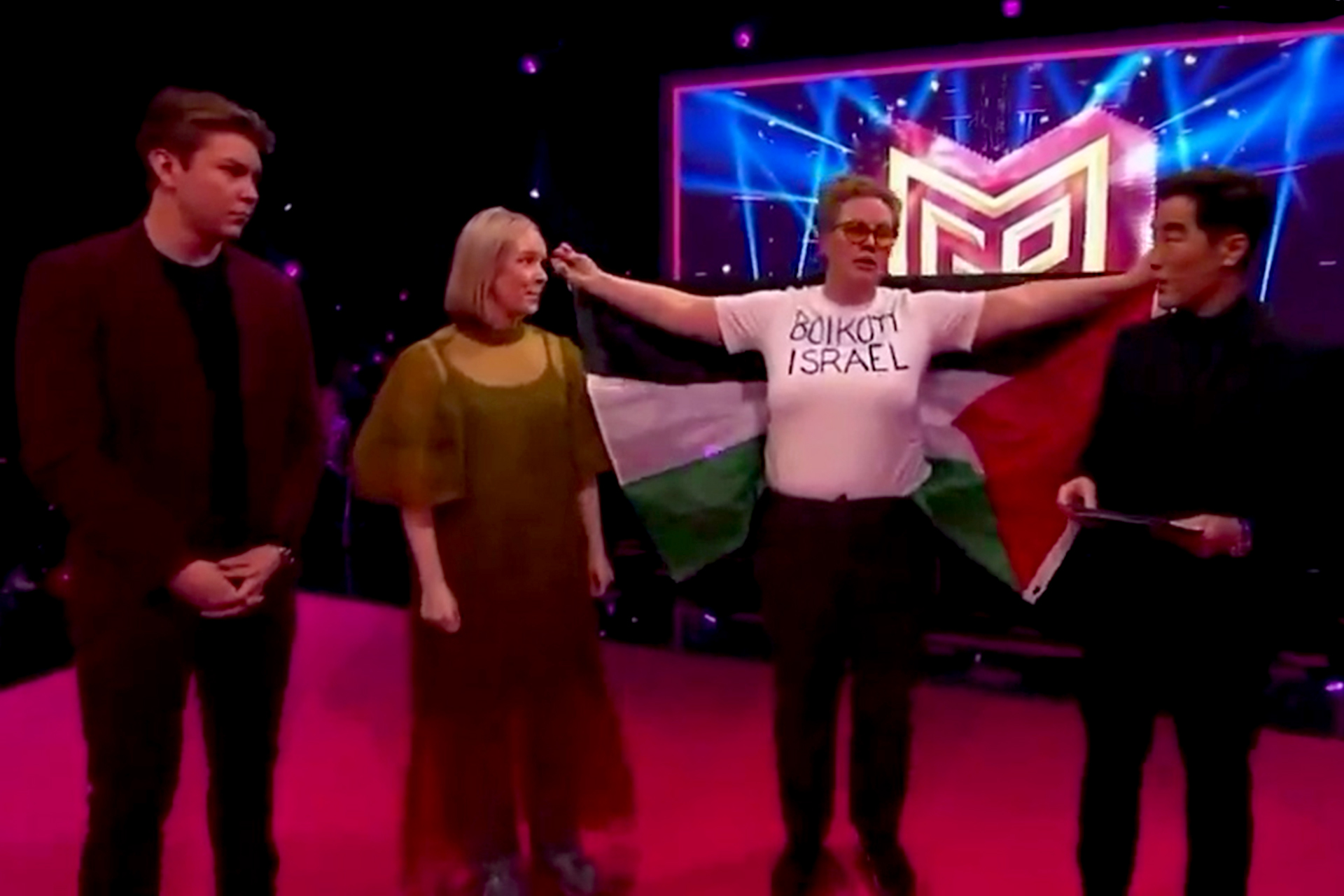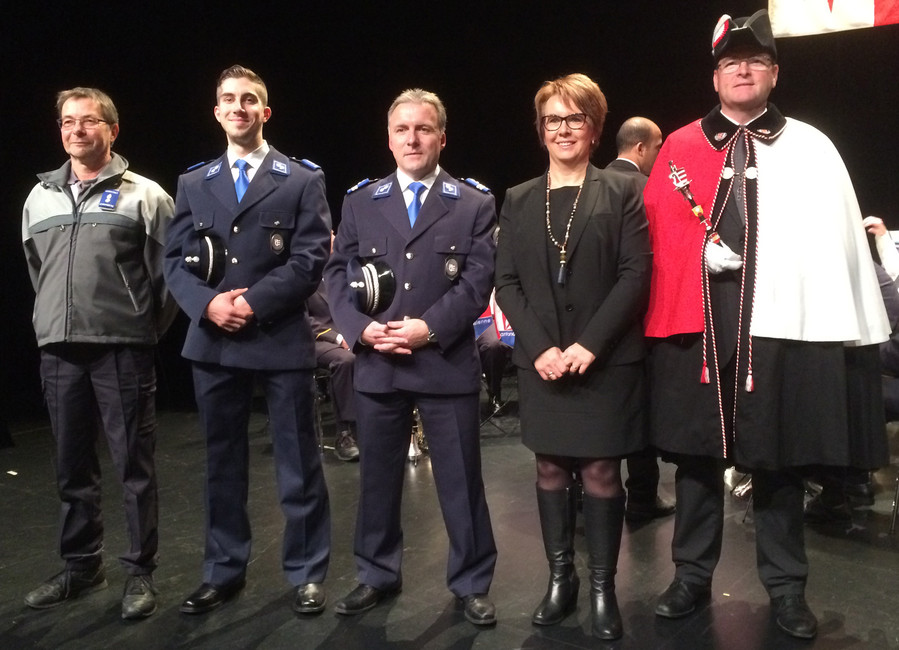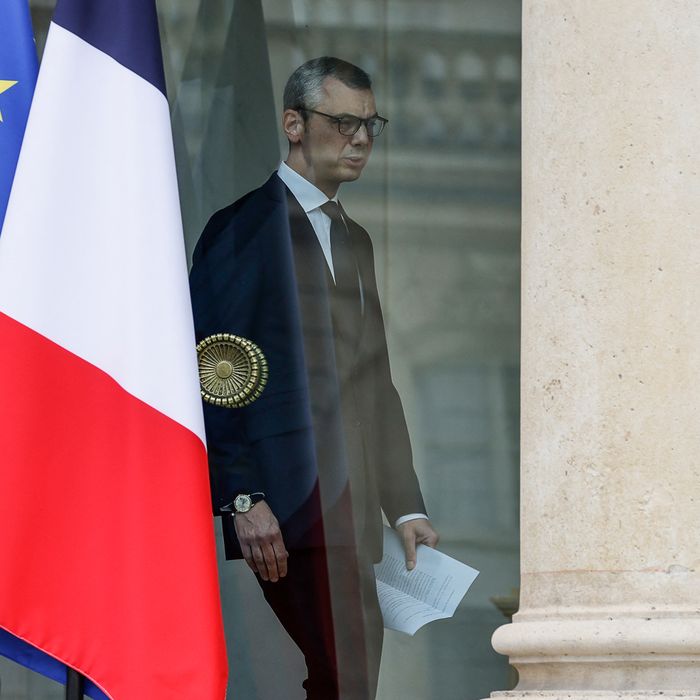Boycott Eurovision In Israel? Director's Response To Criticism

Table of Contents
Keywords: Eurovision boycott, Eurovision Israel, Eurovision controversy, Israel Eurovision criticism, Eurovision director response, boycott Eurovision song contest, Eurovision Song Contest
The Eurovision Song Contest, a globally renowned music competition, has repeatedly found itself embroiled in controversy, particularly when held in Israel. The question of whether to boycott Eurovision in Israel is a complex ethical dilemma, sparking heated debate among artists, activists, and viewers. This article delves into the history of these boycotts, analyzes the official response from the Eurovision director, and examines the counterarguments to understand the multifaceted nature of this ongoing discussion.
The History of Boycotts Against Eurovision in Israel
Calls to boycott Eurovision when held in Israel stem from deep-rooted concerns regarding the Israeli-Palestinian conflict and the ongoing occupation of Palestinian territories. These boycotts are not isolated incidents; they represent a long-standing protest against Israeli policies.
Key events fueling these boycotts include Israel's military actions in Gaza, the expansion of settlements in the West Bank, and the ongoing blockade of Gaza. Prominent figures and organizations involved in advocating for boycotts have often highlighted the human rights violations experienced by Palestinians.
- Palestinian human rights concerns: The core of the boycott movement rests on the belief that hosting Eurovision in Israel normalizes and legitimizes the Israeli government's actions, thereby undermining the Palestinian struggle for self-determination and human rights.
- Criticism of Israeli occupation policies: Boycott advocates argue that the event distracts from the crucial human rights issues and the suffering inflicted upon Palestinians under occupation.
- Arguments for and against cultural boycotts: The debate surrounding cultural boycotts involves intricate discussions of their effectiveness, ethical implications, and potential impact on freedom of expression. Some argue that they are a powerful tool for political pressure, while others believe they stifle artistic exchange and harm innocent individuals.
- Examples of artists who have boycotted: Several artists have publicly declined to participate in Eurovision when held in Israel, citing their opposition to Israeli policies as the reason for their boycott. Their actions highlight the powerful moral stance many take against the event's location.
The Director's Official Statement and Justification
The Eurovision director, in response to the calls for a boycott, has typically issued statements emphasizing the event's apolitical nature and its dedication to promoting inclusivity and artistic expression. The official line generally asserts that Eurovision is a platform for musical talent and international collaboration, not a political stage.
The arguments presented often focus on the unifying power of music and the shared passion for the competition that transcends political divides. Efforts to promote dialogue and understanding are often cited as evidence of the event's commitment to inclusivity.
- Key points made in the director's defense: These typically center around the separation of art and politics, promoting the idea that Eurovision is a space for artistic celebration, irrespective of the host country's political situation.
- Focus on inclusivity and artistic expression: The director’s statements often stress the importance of bringing people together through music, highlighting the diverse range of participants and the shared enjoyment of the event.
- Mention of efforts to promote dialogue and understanding: Initiatives aimed at fostering dialogue and mutual understanding between different cultures are frequently cited as part of the event's broader mission.
- Discussion of the event's apolitical nature: A recurring theme in the director’s response is the emphasis on Eurovision as a non-political event, focused solely on celebrating musical talent.
Counterarguments and Criticisms of the Director's Response
Critics argue that the director's response is insufficient and fails to adequately address the concerns raised by boycott advocates. The claim that Eurovision is apolitical is frequently challenged, with critics arguing that hosting the event in Israel inherently lends legitimacy to the Israeli government and its policies.
- Insufficient acknowledgment of Palestinian concerns: Critics contend that the director's statements fail to acknowledge the suffering of Palestinians and the human rights violations occurring in the occupied territories.
- Accusations of ignoring human rights violations: The argument is made that ignoring the context of the host country's actions is not only insensitive but also complicit in perpetuating injustice.
- Debate on the possibility of separating art from politics: A central point of contention is the very idea that art and politics can be entirely separated. Critics argue that all cultural events have a political dimension, and the location of Eurovision in Israel is inherently political.
- Analysis of the effectiveness of the director's communication strategy: Some argue that the director's response has been ineffective in addressing the concerns of critics, failing to bridge the divide and instead exacerbating the controversy.
The Impact of the Boycott on Eurovision's Image and Viewership
The Eurovision boycott movement has undoubtedly impacted the event's image and potentially its viewership. The controversy generates significant media coverage, potentially alienating some viewers while attracting others who support the boycott.
- Changes in viewership numbers: While precise figures are difficult to isolate, anecdotal evidence suggests that the controversy has had an impact on viewership in certain regions, with some experiencing decreases.
- Impact on sponsors and broadcasters: Sponsors and broadcasters may be hesitant to associate with an event mired in controversy, potentially leading to financial repercussions for the competition.
- Long-term effects on Eurovision's global image: The continued boycotts and related controversies pose a long-term challenge to Eurovision's global reputation, impacting its perceived neutrality and ability to foster truly inclusive global participation.
Conclusion
The debate surrounding the Eurovision boycott in Israel is complex and multifaceted. While the director emphasizes the event's apolitical nature and dedication to inclusivity, critics argue that hosting the competition in Israel inherently legitimizes Israeli policies and ignores the suffering of Palestinians. The effectiveness of the director's response in addressing these concerns remains a subject of ongoing debate, with the potential impact on the event's image and viewership a significant consideration. The ethical dilemmas involved require careful consideration and thoughtful discussion.
Call to Action: Engage in thoughtful discussion about the complex issues surrounding the Eurovision boycott in Israel. Share your opinion and contribute to a more informed understanding of the Eurovision controversy and its broader implications. Keep the conversation going about the #EurovisionBoycott and #EurovisionIsrael.

Featured Posts
-
 Young Stars Decision Dean Huijsen Joins Premier League Club
May 14, 2025
Young Stars Decision Dean Huijsen Joins Premier League Club
May 14, 2025 -
 Developpement De Carriere Chez Societe Generale Nominations Et Promotions
May 14, 2025
Developpement De Carriere Chez Societe Generale Nominations Et Promotions
May 14, 2025 -
 Captain America 4 Brave New World Official Disney Release Date
May 14, 2025
Captain America 4 Brave New World Official Disney Release Date
May 14, 2025 -
 Best Loungefly Pokemon Bags And Wallets A Buyers Guide
May 14, 2025
Best Loungefly Pokemon Bags And Wallets A Buyers Guide
May 14, 2025 -
 Alexis Kohler De L Elysee A La Societe Generale Analyse De Sa Carriere
May 14, 2025
Alexis Kohler De L Elysee A La Societe Generale Analyse De Sa Carriere
May 14, 2025
